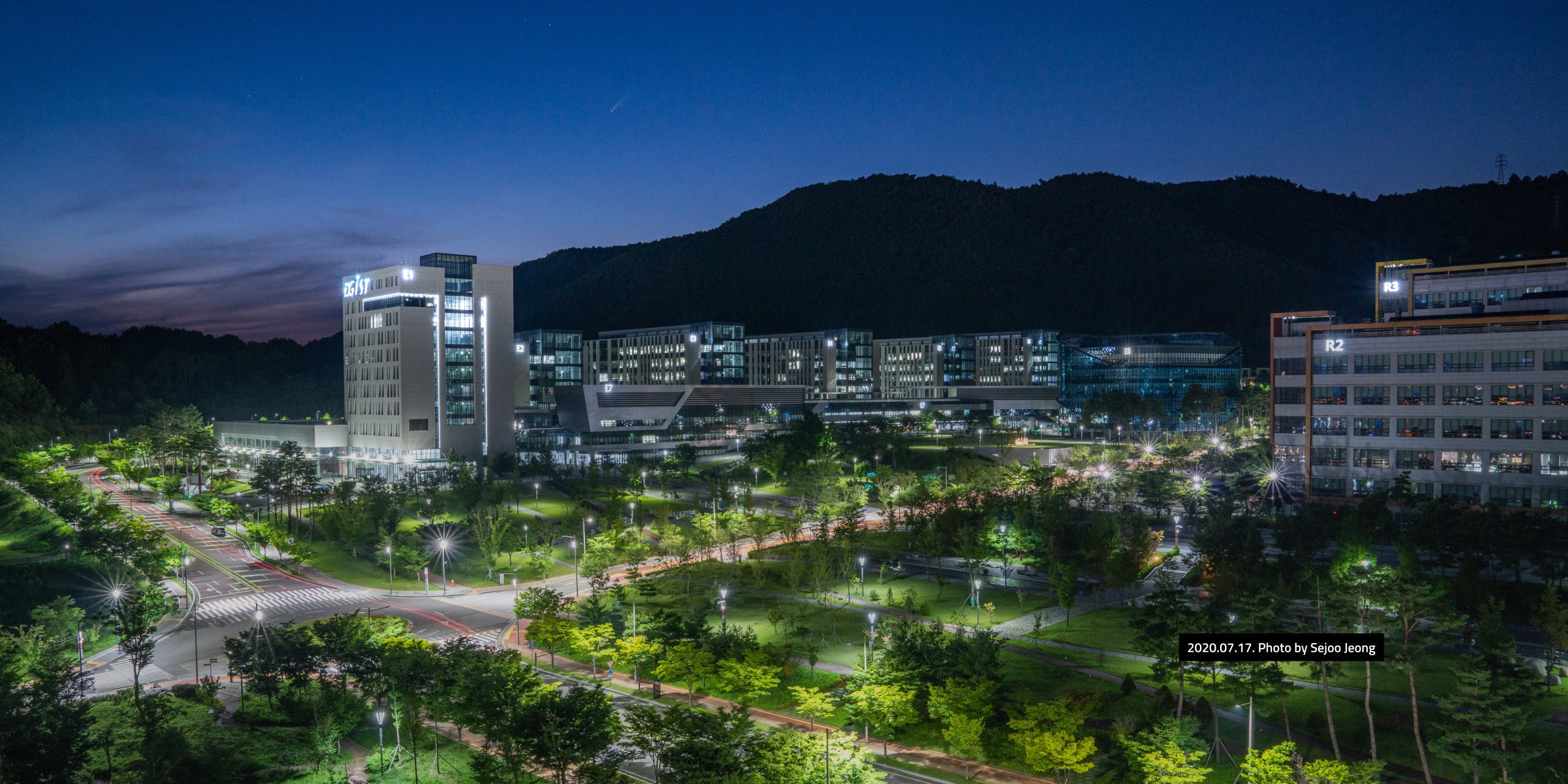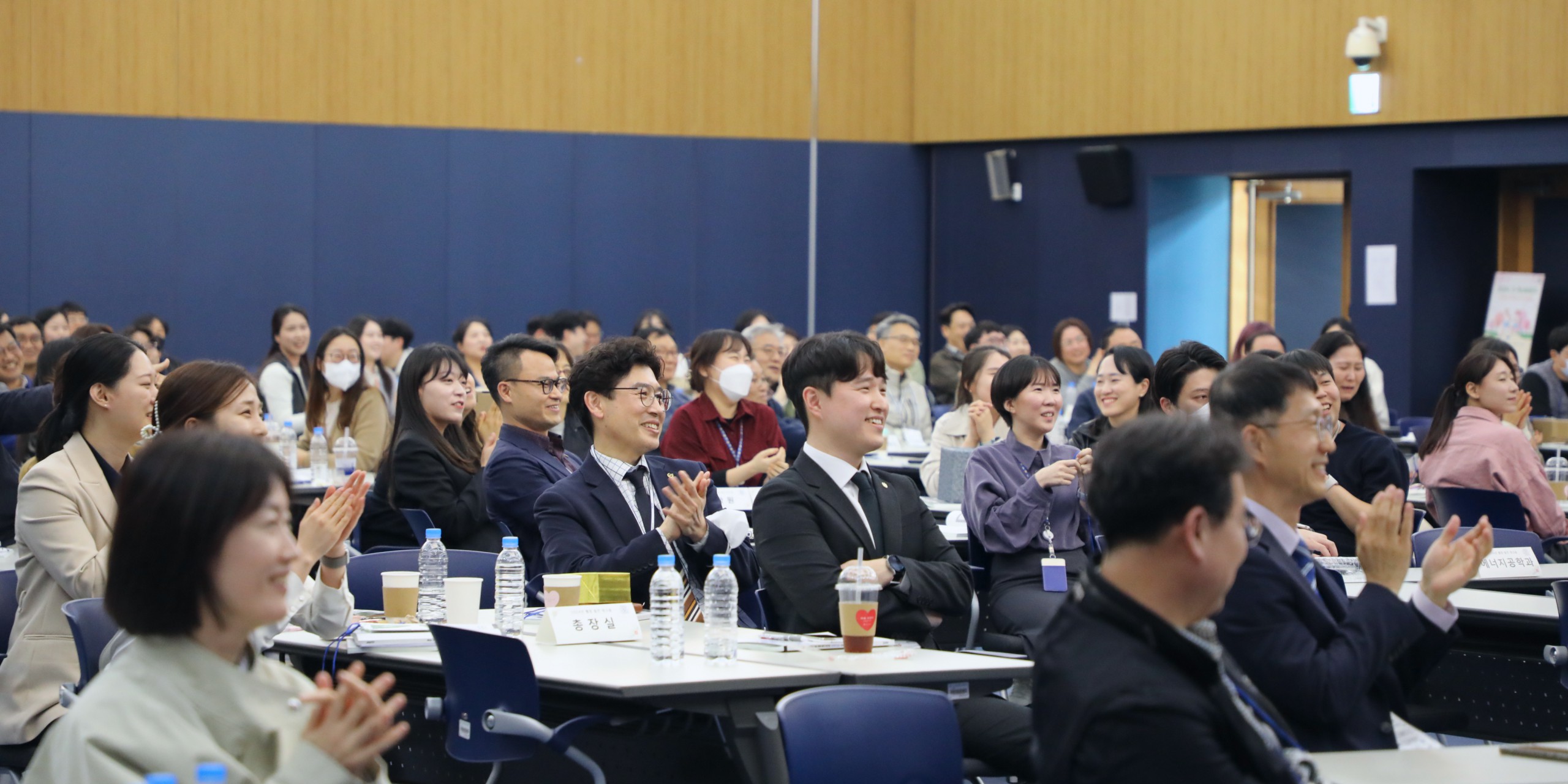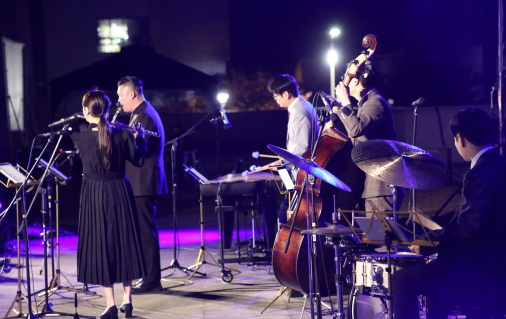
Four DGIST Graduate Students Honored to Win Presidential Scholarship
- Three scholarship recipients were selected in multidisciplinary ICT and one in life sciences through the 25:1 competition ratio for the scholarshipFour DGIST graduate students were selected for the first Graduate School Presidential Science Scholarship.The Graduate School Presidential Science Scholarship is a scholarship program established this year and designed to provide differentiated support for graduate students in science, technology, engineering, and mathematics. The number of new scholarship recipients is 120: 70 students in PhD programs (30 new and 40 current students) and 50 students in Master's programs (25 new and 25 current students). After receiving individual applications from graduate students, the selection process consisted of the first stage of document review and the second stage of in-depth interviews. This years competition ratio was approximately 25:1.The number of selected students by field was proportionally distributed based on the number of applications received: 19 students in natural sciences (10 for PhD, 9 for Masters), 24 students in life sciences (16 for PhD, 8 for Masters), 30 students in engineering (17 for PhD, 13 for Masters), and 47 students in multidisciplinary ICT research (27 for PhD, 20 for Masters). Three students from DGIST were selected in multidisciplinary ICT research (2 current students for PhD, 1 current student for Masters), and 1 student in life sciences (1 new student for Masters).Shin Heejae, a student in a combined Master's and PhD program in the Department of Robotics and Mechatronics Engineering, was selected in the field of multidisciplinary and interdisciplinary research (current student in a PhD program in the category of multidisciplinary ICT research) for his research titled Development of the Regenerative Neural Interface for the Functional Restoration of Neuronal Injuries and Applications to Human Enhancement Technologies. Considering the physiological mechanism of the peripheral nervous system and the medical approach, Shin will conduct research on the regenerative neural interface to be applicable to the development of bionic upper and lower limbs for patients with neurological injuries through the multidisciplinary research of neuroscience and neuroengineering.Ma Hyunjong, a student in a combined Master's and PhD program in the Department of Energy Science and Engineering, was selected in the field of multidisciplinary and interdisciplinary energy and environment research (current student in a PhD program in the category of multidisciplinary ICT research) for his research titled Development of Hydrogen Storage Nanomaterials with High Storage Capacity and Adsorption Speed through Ultra-High Resolution Real-Time Transmission Electron Microscopy. Ma will conduct research on the development of hydrogen storage nanomaterials with high storage capacity and adsorption speed to realize a hydrogen economy based on hydrogen, which is gaining traction as an eco-friendly source of energy for the future.Kim Jiyoo, a student in a Masters program in the Department of Electrical Engineering and Computer Science, was selected in the field of telecommunications (current student in a Masters program in the category of multidisciplinary ICT research) for her research titled A Study on Vehicle Telecommunications for the Implementation of High-Level Autonomous Driving. Kim will conduct research to support low-latency, high-reliability data transmission and processing in autonomous driving services to improve the reliability and performance of autonomous driving systems and provide convenience in alienated areas in terms of transportation.Nam Chaerin, a student in a combined Master's and PhD program in the Department of New Biology, was selected in the category of molecular life sciences (new student in a Masters program in the category of life sciences) for her research titled A Study on the Development of Antibody Therapeutics Presenting Answers to Various Diseases, Including Intractable Cancer. Nam will conduct research to develop antibody drugs with high selectivity and binding to therapeutic targets and activate the suppressed immune environment in the tumor microenvironment to effectively treat intractable cancer.DGIST President Lee Kunwoo said, I am immensely pleased that DGIST graduate students are selected for the Presidential Science Scholarship. We will fully support the selected students so that they can devote themselves to their studies and grow into world-class researchers.DGIST, which marks the 20th anniversary of its foundation this year, is a science and technology institute directly under the Ministry of Science and ICT and has produced about 1,900 talented individuals in multidisciplinary sciences since opening its graduate and undergraduate programs in 2011 and 2014, respectively. Furthermore, DGIST recently ranked 7th in the world in citations per paper per faculty member, an indicator of research excellence in the QS World University Rankings. Lately, DGIST is also preparing a foothold to become a world-class university as the university successfully won the bid to host the World Engineering Education Forum - Global Engineering Deans Council 2025 (WEEF-GEDC 2025), the world's largest conference in engineering education.













